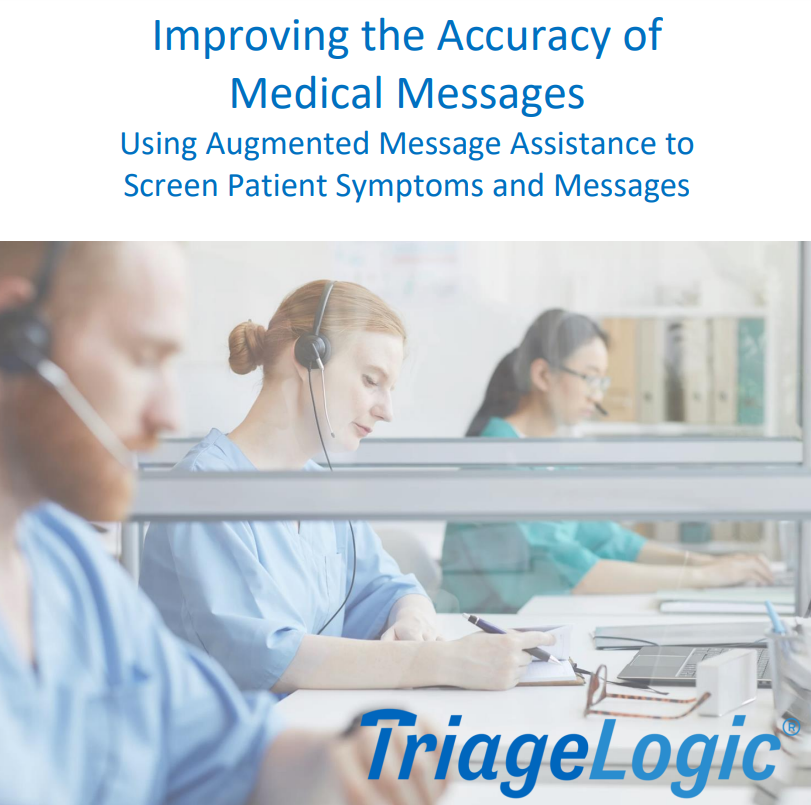Have you ever received a message that a patient needed a prescription refill, only to find out that it was something more serious? Or perhaps your nurses weren’t given enough information to identify the severity of a patient’s symptoms? While these may not seem like immediate concerns, these types of medical message errors have the potential for dangerous (even fatal) results for those patients, not to mention potential malpractice lawsuits against their providers. Read on to learn how to improve phone messages in a medical office.
Can Medical Messages Be Grounds for a Lawsuit?
Providers should be mindful of how their front desk staff and nonclinical phone operators are engaging with their patient callers. Roughly 40 percent of the time, the messages they relay to nurses and physicians are inaccurate, whether it’s understating the severity of a patient’s symptoms or sending the wrong information altogether. In fact data shows that about one out of every six patient messages requires urgent evaluation, but about a third of those messages do not accurately describe the seriousness of patient symptoms.
Providers also need to make sure that someone from their office is always answering patient requests in a timely manner. One doctor in Wisconsin faces a potential malpractice lawsuit for not returning the phone call of a patient who later died. According to MDLinx, “Doctors may be liable for missing patient phone calls and could face medical malpractice lawsuits for this if they don’t have adequate back-up plans in place.” While the article notes that doctors shouldn’t be expected to be “available to every patient 24 hours a day, seven days a week, a doctor must also not refuse to communicate with patients during critical situations,” and should therefore make sure that someone else is available to respond to patient concerns when they are not.
What Options Do Providers Have?
If providers want to improve phone messages in a medical office, they have a couple of options.
Screening for Symptoms and Reason for Call
First, providers need to address the training of their front desk or nonclinical staff — basically, anyone who first answers the phone for patient callers. Those staff members may have exceptional phone etiquette, but they typically aren’t medically certified, which means they lack the knowledge to recognize what questions to ask to ensure that providers receive accurate pictures of the urgency of these calls. For example, symptoms might be more severe than patients initially report.
Rather than spend additional time and money with expanded medical training for these operators, a better alternative is to give them access to a real-time symptom-accuracy solution called MedMessage Assist (MMA). This platform, developed by TriageLogic, uses augmented intelligence to ensure that operators ask all of the relevant questions so that providers are given proper assessments of the urgency of patient calls. It does this by analyzing the text that operators type into their medical practice’s software while speaking with patient callers, then prompts those operators with additional questions when it identifies symptoms that need clarification. This arrangement is ideal for everyone: patients are given the human interaction they need from operators; operators are given a means of quickly identifying whether they have all of the information that they need; and nurses are able to correctly triage the severity of those patients’ symptoms.
In fact, MMA has already demonstrated a success rate of over 99 percent.
MMA Example
A patient called asking for a prescription refill. MMA prompted the operator to ask questions about any symptoms. It turned out that the patient was experiencing severe headache and numbness in their left arm, a sign that the doctor needed to call the patient back immediately.
Learn more about the benefits of MMA by downloading a free copy of our white paper.
Triage Nurses
Once providers know that the nonclinical operators manning their medical office phones are able to relay the correct messages, they need to ensure that those messages are evaluated and responded to in the appropriate windows of time. That responsibility is best served by triage nurses, who use Schmitt-Thompson protocols to evaluate patient symptoms, advise them on the best providers to treat them, and share that patient data directly with those providers.
Practices that don’t have their own internal team of triage nurses, or may not have any who work after normal business hours, are encouraged to outsource this service. Nurse Triage On Call is available 24/7 and offers a medical call center of registered nurses who can respond to patients’ needs by acting as an extension of those practices.
Let’s Talk About Protecting Your Practice
The best way to improve phone messages in a medical office to avoid malpractice is through a combination of messages that accurately capture serious symptoms, and triage nurses who call patients back to provide care advice. If you have questions about how either of these could be implemented at your practice, we want to hear from you!
Contact us to learn more about a program.
About TriageLogic
TriageLogic is a URAC-accredited, physician-led provider of top-quality nurse telehealth technology, remote patient monitoring, and medical call center solutions. Founded in 2007, the TriageLogic Group now serves more than 22,000 physicians and covers over 42 million lives nationwide.






